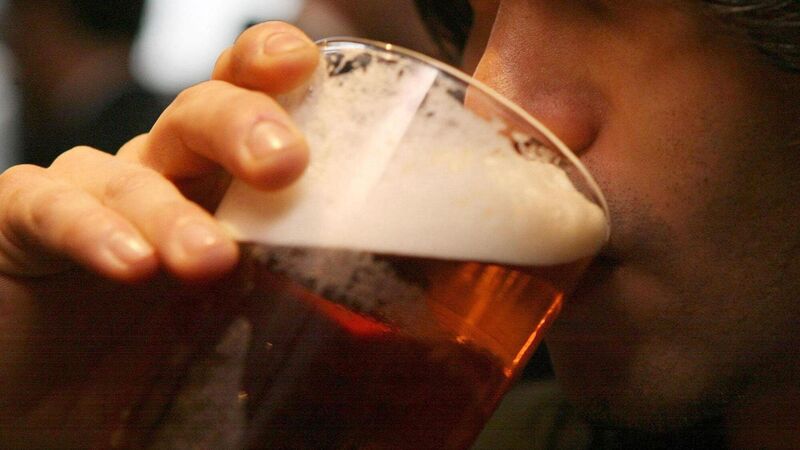Alcohol industry lobbied EU to resist health warnings on drinks

In 2016, Ireland informed the European Commission of its intention to introduce health warnings on alcoholic beverages, such as cancer warnings. Picture: Johnny Green/PA Wire
Ireland’s proposal to introduce health warnings on alcoholic beverages have been met with an “extensive lobbying campaign from the alcohol industry” at an EU level to try and undermine it.
That is according to a report by IOGT-NTO and Movendi International, two Swedish NGOs, published on the Health Research Board’s National Drugs Library on Thursday.
While ‘big tobacco’ has for a long time been scrutinised and excluded from policy, ‘big alcohol’ which has similar goals and tactics, has remained in the corridors of power in Brussels, the report lays out.
In 2016, Ireland informed the European Commission of its intention to introduce health warnings on alcoholic beverages, such as cancer warnings.
“For Ireland, this was seen as an important step in raising awareness among its population on the negative effect alcohol has on health. As Ireland’s proposal involves products that are part of the single market, it is standard practice for this to be commented on by the European Commission.
The Irish proposal has been discussed on the EU level on three occasions, in 2016, 2018, and 2022. Each time it has been met by an extensive lobbying campaign, according to the report.
“Aside from holding meetings on EU-level, many actors from the alcohol industry have also been active in the policy process through leaving written positions, participated in expert groups and lobbied on the national level to sway the Commission opinion into opposition versus Ireland."
The industry has been very active in holding meetings with any actors on an EU-level. "This includes European commissioners and their cabinets, MEPs, permanent EU-representations of member states, amongst others.”
Industries getting involved in a public health proposal where they have an inherent conflict of interest is in itself “paradoxical”, according to the report's authors.
However, it also serves as a "clear agenda-setting function", the report argues, by making it about them, trade, agriculture, and the 'cultural value' of their products.
For example, several organisations from the industry, took meetings with the cabinet of the Commissioner of Agriculture instantly when the Irish proposal returned to the EU-level , “even if the agricultural commissioner has nothing to do with the Irish proposal”.





